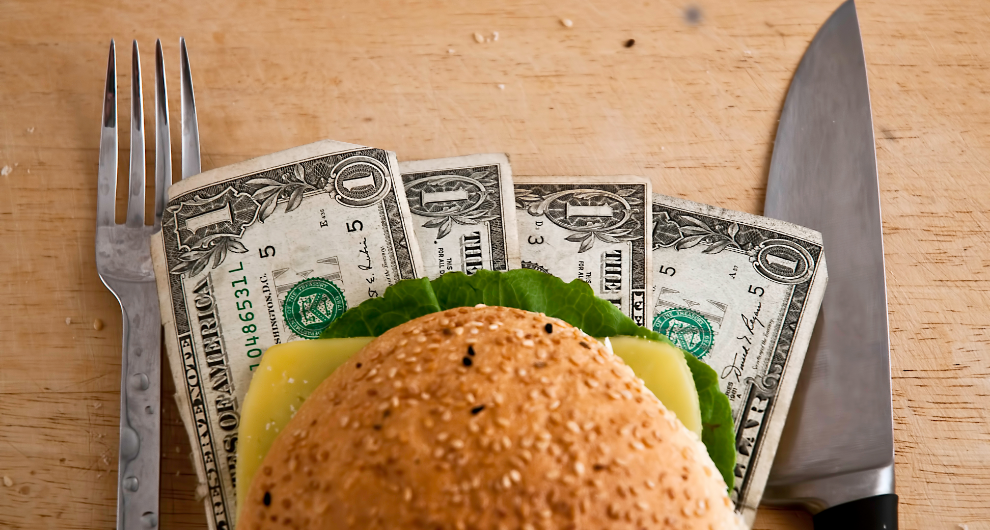We can save the most on what we spend the most on. How to save money on groceries, energy and housing? We bring you advice that works.
We can all see how quickly the prices of the most important goods have risen. You go for a simple purchase, you used to leave a few hundred crowns for it in the store, but now the amount on the receipt easily goes over a thousand or two. According to an analysis by PAQ Research, 15 % of households are now in a situation where they have less than CZK 3 000 per month for each member after paying for living expenses and food. For the other more than 40 percent, the monthly income per household member is between CZK 3,000 and CZK 10,000.
When you think about what a person (s)he needs besides food and housing – first and foremost it’s clothes, getting somewhere, having fun, and so on – you realize how many people live month to month and have trouble making it from paycheck to paycheck.
However, it is desirable for many reasons for households to manage surpluses to save for later use. Why have a reserve in the first place? For unexpected expenses. Whether it’s a long term illness, water breaking and flooding the home, unexpected job loss or something else, at some point a reserve will be needed. No one will tell you exactly how much it should be, but the general consensus is that it should last at least three to six months, ideally a year of normal household operation. After all, covid taught us that disasters come unannounced.
Save where it flows the most
Books and articles on home finance mostly deal with how to deal with surplus money. Where to store or invest them so that their value is not lost, or better yet, increased. But the number of families who have enough money left over to make it even worth considering them in this way is only 30-40 percent. So first you have to get among them. There are two ways to do this and the ideal is to be able to combine them.
One way is to increase your income, try to ask for a raise at work, find another job, or take on extra work. But we’ll focus on the latter. If only because it will also serve well those who already have higher incomes – so that they can keep more of them. So let’s take a look at how to save on expenses.
The key to successful saving is to focus on those items where we spend the most. According to the Czech Statistical Office, there are almost one million complete households with children, so let’s focus on their biggest expenses: food (19%), housing and energy (18%), transport (12%) and recreation (10%). Here are some tips on how to save on these items. Some you may have already thought about and some you may not even want to think about. But if you’re serious about saving, be honest with yourself. Even a simple pencil and paper can help: once you’ve written down your expenses, you’ve seen them, you’ve acknowledged them – and you can start working on them.
Food
By far the most you can save on what you really don’t need. These are typically alcoholic beverages, but also packaged soft drinks, sweetened and unsweetened. However, if you do not purchase such surplus goods, saving will be more difficult. Planning helps: make a multi-day menu at home and make a shopping list based on it. Stick to the list.
Already in the store, keep an eye on the expiration dates so you don’t throw away what you can’t use. According to the Institute of Sociology of the Academy of Sciences, the average Czech family could save about CZK 8,000 a year by reducing food waste.
Discounts are fine, but don’t be tempted by them in the store. It’s better to work with them ahead of time, according to a flyer or store app, then you can use them to bargain shop to stock up on more durable goods that you know you’ll actually use. If you are buying something on sale with the idea of saving money, don’t compare the reduced price to the old price, but to not buying the item at all.
Specifically: how to save money when buying groceries
- Make a shopping list in advance. Shop by the list and avoid the lure of discounts.
- Be proactive with discounts: only look out for discounts on goods that you buy anyway and that you can stock up on without the risk of spoiling.
- It is better to buy smaller quantities of food more than once a week than to make a large purchase a fortnight in advance, where it is more likely that some of the food will not be used in time.
- Find out how to ideally store which foods to make them last as long as possible. Place food with a short shelf life or an expiry date near the front of the fridge in a visible place. Our tips will help you more: Don’t throw it away. Apple in the fridge, onion in the dark
- Hunger has big eyes. Don’t go shopping hungry.
Housing and energy
You don’t want to hear about moving from your lovely house to some smaller apartment, do you? Nevertheless, there is an opportunity for savings – savings on property maintenance and, most importantly, savings on heating costs because the flats are next to each other and therefore use heat more efficiently.
Specifically: how to save energy
- Lower the temperature in the room. Lowering the temperature by one degree will reduce heating costs by about five percent.
- Do not cover the heating elements and remove furniture that obstructs the flow of heat into the room.
- Avoid additional electric heaters, so-called cubes and “blowers”, which will make your bill very expensive.
- Set your fridge to 4 °C and do not put hot or open food in it. Don’t overfill the fridge, it works best when it’s only 80 per cent full. Defrost regularly.
- Don’t leave appliances in stand-by mode, it can cost you hundreds of pennies a year. Get a socket with a switch for them.
- Use energy-saving shower heads and take a bath.
- Do not overheat the hot water. Wash at 30 °C or maximum 40 °C.
- Cook with a lid, you really save a lot.
- Modern energy-saving compact fluorescent lamps save up to 80 percent of energy – depending on the quality – and last six to 15 times longer. Even better are modern LED bulbs.
Transport
Statistically, this also includes the purchase of a car, so it is easy to see where savings can be made here. However, most people do not solve such a “problem”, they simply do not have the money for a new car.
If possible, switch to public transport. It’s cheaper and takes a lot of the hassle out of car maintenance.
Recreation
A holiday is a tip for saving money. During the covid we got used to driving around the homeland and many of us found out how beautiful it is. It’s easy to cut back on travel expenses abroad and still have a quality holiday.
Source : https://www.penize.cz/nakupy/438928-3usetrete-prakticke-tipy-jak-snizit-vydaje-domacnosti






